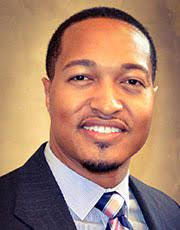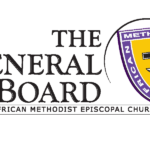Why We Need to Sing, Now More Than Ever
By Jason D. Thompson, PhD, Contributing Writer
In a digital world full of conflict and a lack of hope, where social media amplifies a constant stream of disagreement rather than meaningful conversations, there is a source of hope and the potential for peace and improvement. It is a scientifically validated and divinely inspired remedy, a practice as ancient as humanity itself yet remarkably potent in its capacity to heal, connect, and elevate the human spirit: the act of singing. In his letter to the early Christians in Ephesus (Ephesians 5:19-21), Paul urged them to sing, not as a performance but as a way of life. He did not care if they were pitch-perfect; he wanted them to understand that singing is a way to learn, to find joy, and to navigate the complexities of life. I worry that we have lost sight of this in our modern worship. We have replaced congregational singing with polished performances, leaving many worshippers as passive spectators instead of active participants.
But the Apostle Paul’s message is clear: singing is for everyone. It is not about sounding good; it is about connecting with something larger than ourselves. Singing is good for the soul. It is scientifically proven to reduce stress, boost mood, and strengthen the immune system. But it is more than just a physical experience; it is spiritual. When we sing together, we tap into a shared energy and a sense of unity that transcends our individual differences. And let us be clear: There is no right or wrong way to sing. Whether it is hymns, gospel, spirituals, or even a spontaneous musical rendition, what matters is that we raise our voices in gratitude and praise. As Paul wrote, we are to “sing psalms and hymns and spiritual songs among yourselves, singing and making melody to the Lord in your hearts.”
As a previous music professor and church music director, I have heard many folks purport the acclamation, “But I can’t sing!” That is okay. Singing is not a talent reserved for the musically gifted. It is a birthright, a universal language that speaks to the depths of our being. When we sing, we give voice to our joys, our sorrows, and our deepest longings. So, let us reclaim the power of song. Let us sing in our churches, in our homes, and in our hearts. Let us sing for ourselves, each other, and the One who gave us the gift of music. Because when we sing, we are not just making noise; we are creating something beautiful, something powerful, something that has the potential to change us and the world for the better.
Often, the outcomes of our singing do not come to us quite by surprise because we sing expecting something to happen. I hope we never remove the element of expectation from our worship because God has a way of surprising us through singing and by breaking into our lives and situations in ways that we hope for but could not quite have imagined fully.
Jason D. Thompson is pastor of Sacramento’s St. Andrews AME Church, the oldest historically Black congregation on the West Coast, and teaches in the Black Honors College at California State University-Sacramento.






At 77 it’s hard to remember when our voices were removed or stifled from church services. We were participants in the service and sang hymns. Now, we no longer sing, and hymns are no longer part of Sunday church services. Maybe that’s one of the reasons attendance has dropped in so many churches. We no longer feel a part of the service.